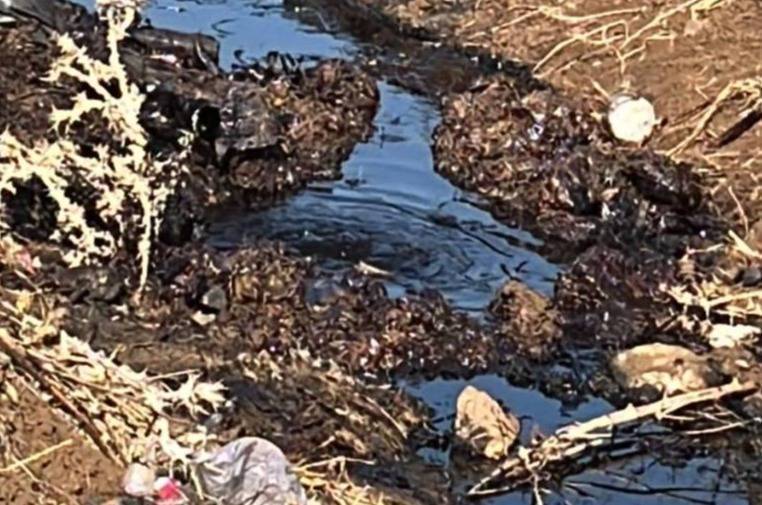
Oil spilled on the ground after individuals punctured the Iraqi oil pipeline passing through Akkar in northern Lebanon. (File photo courtesy of: Michel Hallak)
BEIRUT — The Ministry of Energy and Water announced on Wednesday the "temporary" closure of the Tripoli oil facilities in northern Lebanon. The facilities were built in 1930 to transport oil from Iraq to Tripoli via Syria and have been out of service since the start of the Lebanese Civil War in 1975, following "the impossibility of protecting these structures from theft and vandalism," the ministry said in a statement.
Individuals regularly sabotage these pipelines and use pumps to suck up quantities of oil which they then sell on the black market. According to the ministry, 94,000 liters of diesel oil were stolen by criminals between Nov. 1 and 6, while 126,000 liters were siphoned off in late October. Last month, unidentified individuals punctured a section of the pipeline and spilled large quantities of oil that polluted nearby land.
"We have taken this temporary closure decision with regret, to protect [the site] from violations, pending the implementation of more effective security procedures," the statement said.
The Ministry of Energy and Water also recalled that it has submitted dozens of complaints on this subject since Oct. 21, 2021, after violations increased, including a direct complaint before the office of the public prosecutor at the Court of Cassation in February 2022, 16 complaints before the Northern Appeals Court prosecutor's office and another five complaints before various appeals courts prosecutors' offices, among which is the financial prosecutor's office.